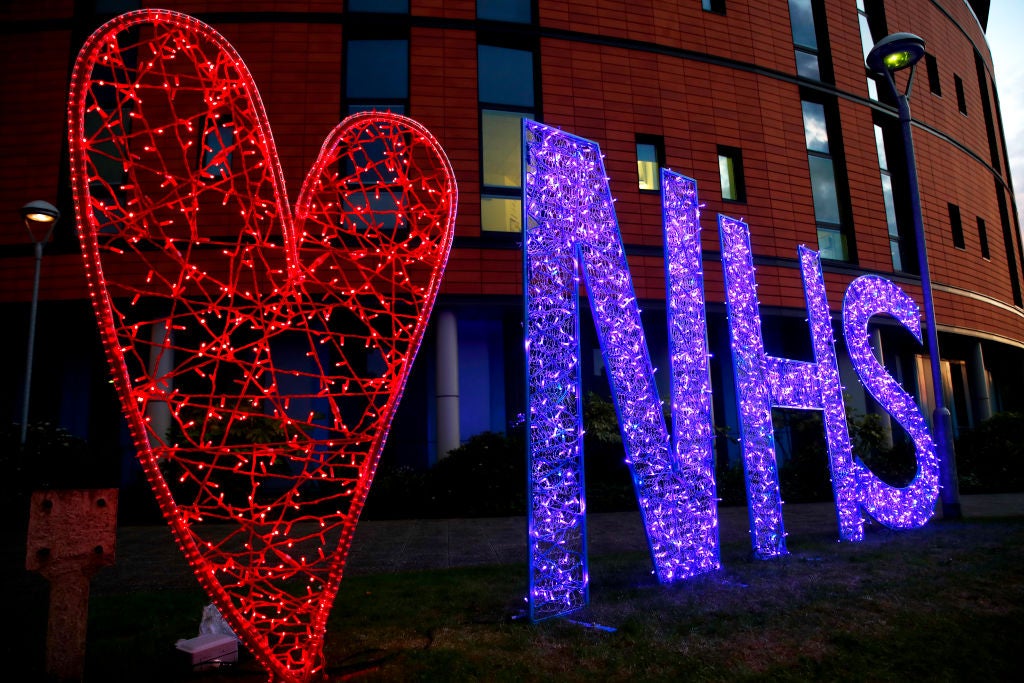Public satisfaction with NHS at lowest point for 25 years, survey finds
It comes following a ‘decade-long funding squeeze’, according to a member of the group behind the study

Public satisfaction with the NHS has fallen to its lowest level in a quarter of a century, a survey has found.
Problems with the health service have got worse during the pandemic – but they have been many years in the making with a “workforce crisis” and a “decade-long funding squeeze”, according to a member of the group behind the study.
Wait times, staff shortages, and inadequate government funding remained the top reasons for dissatisfaction, according to the King’s Fund and Nuffield Trust health think tanks, which published the report.
About 41 per cent of respondents were “very” or “quite” dissatisfied, according to their 2021 British Social Attitudes survey. Just 36 per cent of people said they were happy with the NHS – the lowest level since 1997.
The authors said satisfaction with individual services fell to record lows. Just 38 per cent said they were content with GP services and only a third were satisfied with NHS dentistry. Both of these are the lowest findings since 1983 when the survey began.
Despite this, the think tanks said support for the principles of the NHS is as strong as ever.
The survey found the overwhelming majority of people think the NHS should be free of charge when you need it, funded through taxation, and available to everyone.
Dan Wellings, senior fellow at the King’s Fund, said it seemed there was a “halo effect” around the NHS during the pandemic where levels of satisfaction represented “measures of support for the service”.
But he said the grace period started to come to an end last year when people were “seeing other services opening up thinking, ‘well, why isn’t the NHS opening up?’”
He added: “People are often struggling to get the care they need and identified access to general practice, waiting times for hospital care and staff shortages as areas that need to improve.
“These issues have been exacerbated by the extraordinary events of the past two years but have been many years in the making following a decade-long funding squeeze and a workforce crisis that has been left unaddressed for far too long.
“Despite this, support for the founding principles of the NHS remains strong. The public do not seem to want a different model, they just want the one they have got to work.”
The fall in overall satisfaction with the NHS can be seen across all ages, income groups, genders and supporters of different political parties, the survey found.
For the first time since 2002 more people were dissatisfied with the NHS than happy with it.
GP services historically have the highest level of public satisfaction, but the survey found more people were dissatisfied with general practice and dentistry than those who were satisfied.
Around half (49 per cent) said they were satisfied with A&E services and 41-49 per cent expressed satisfaction with other hospital services, according to the poll of 3,112 people and further questioning of 1,039 adults across England, Scotland and Wales.
Half said they were not satisfied with social care services, according to the poll, conducted by the National Centre for Social Research in September and October last year.
Asked how the NHS could improve, the top responses were improving hospital waiting times, making it easier to get a GP appointment, and increasing the number of staff in the NHS.
The authors of the report called for ministers to set targets for the recovery of services so people can set realistic expectations about when they will receive care.
Professor John Appleby, director of research and chief economist at the Nuffield Trust, said: “On top of the dramatic fall in overall public satisfaction with the NHS and care services, it is really very striking that we are seeing record low levels of satisfaction with individual health care services.
“People can be very supportive of the NHS and be dissatisfied simultaneously.
“They were completely understanding of what the NHS had to do in this emergency in terms of delaying care and treating Covid (patients), that held very strong for quote a few months during the first lockdown and beyond.
“But it was a year and a half by the time we asked these questions, that’s quite a long time.
“There are now 300,000 people who have been waiting over a year for elective care, there is hardly a family who doesn’t know somebody who is on the list.”
The survey showed patients who had accessed care reported a higher level of satisfaction.
NHS workers should not take the results to heart, the report’s authors said. People were happy with the quality of care and the attitudes and behaviour of staff, the survey found. The main reason people were satisfied with the NHS is that it is free to all who need it.
Join our commenting forum
Join thought-provoking conversations, follow other Independent readers and see their replies
Comments
Bookmark popover
Removed from bookmarks